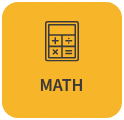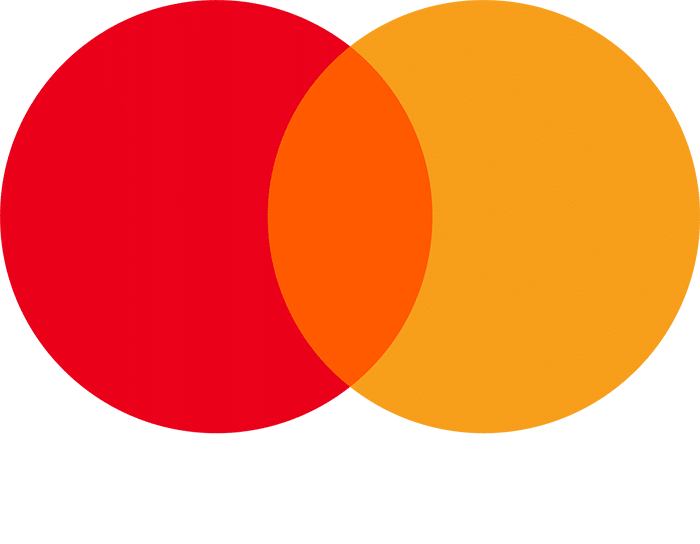
Mathematics is a subject that builds upon itself year after year, with each new grade level introducing more complex concepts and skills. It is crucial for students to have access to grade-specific math resources that cater to their current level of understanding and help them master the necessary skills to succeed.
Whether you are a parent, teacher, or student, having access to grade-specific math resources is vital for academic success. Let’s explore how they can make a difference in your child’s math education!
Are you looking for awesome math resources? Explore Chalkboard’s collection of Math workbooks!
Understanding the Importance of Grade-Specific Math Resources
When it comes to learning math, having grade-specific resources is of utmost importance. These resources are specifically designed to align with the curriculum and learning objectives of each grade level, ensuring that students are equipped with the necessary skills and knowledge to progress academically. Let’s explore the various reasons why grade-specific math resources are crucial for students’ mathematical development.
1. Tailored to Grade-Level Standards
Grade-specific math resources are carefully crafted to align with the standards and expectations set for each grade level. These standards outline the specific math concepts and skills that students should grasp at a given grade. By using grade-specific resources, students can focus on the appropriate content for their grade, ensuring they are not overwhelmed with advanced concepts or left behind with basic skills.
2. Builds a Strong Foundation
Mathematics is a subject that builds upon itself, with each new concept building upon previously acquired knowledge. Grade-specific math resources provide a structured progression of skills, allowing students to develop a strong foundation that will support their future learning. By mastering fundamental math concepts at their grade level, students can confidently tackle more complex topics in subsequent years.
3. Addresses Developmental Readiness
Students at different grade levels have varying levels of cognitive and mathematical development. Grade-specific math resources take into account these developmental differences and provide appropriate learning materials and activities. This ensures that students engage with math concepts that are challenging yet achievable based on their current stage of development.
4. Encourages Confidence and Motivation
When students have access to resources that are tailored to their grade level, they are more likely to experience success and build confidence in their math abilities. Working with materials that are at an appropriate level of difficulty fosters a sense of accomplishment and motivates students to continue their mathematical journey. This positive reinforcement can have a significant impact on their engagement and overall attitude towards math.
5. Supports Different Learning Styles
Grade-specific math resources cater to the diverse learning styles and preferences of students. They incorporate a variety of instructional strategies, such as visual aids, manipulatives, interactive activities, and problem-solving tasks. This ensures that students with different learning preferences can engage with the content in a way that best suits their individual needs, increasing their understanding and retention of mathematical concepts.
6. Enhances Classroom Instruction
Grade-specific math resources are valuable tools for both teachers and students. Teachers can leverage these resources to plan and deliver effective lessons that align with the curriculum. They can provide students with structured practice and reinforcement activities, ensuring a cohesive and comprehensive learning experience. Additionally, these resources can support differentiated instruction, allowing teachers to meet the needs of diverse learners within their classrooms.
In summary, grade-specific math resources play a vital role in students’ mathematical development. They align with grade-level standards, build a strong foundation, address developmental readiness, foster confidence and motivation, support different learning styles, and enhance classroom instruction. By utilizing these resources effectively, students can maximize their learning potential and excel in mathematics.
Grade-Specific Math Resources for Elementary School
Elementary school is a critical period for students to develop a solid foundation in mathematics. It is during these formative years that they learn fundamental math concepts and skills that will serve as building blocks for future learning. To support their mathematical development, a range of grade-specific math resources are available. In this section, we will explore why focusing on fundamental math concepts is crucial, highlight essential resources for elementary math, and discuss effective techniques for using these resources.
1. Why Focusing on Fundamental Math Concepts is Crucial
Elementary school is the time when students are introduced to essential math concepts such as number sense, addition, subtraction, multiplication, division, geometry, measurement, and more. These concepts form the foundation upon which more advanced mathematical topics are built. Focusing on fundamental math concepts ensures that students develop a solid understanding of numbers, operations, and problem-solving skills, setting them up for success in higher grades.
2. Essential Resources for Elementary Math
There is a wide range of grade-specific math resources available for elementary school students. These resources can be in the form of textbooks, workbooks, manipulatives, online programs, games, and interactive activities. Some popular resources include:
- Workbooks: Workbooks offer additional practice and reinforcement of math skills, with exercises that align with the curriculum.
- Manipulatives: Manipulatives, such as counters, base-ten blocks, and fraction tiles, provide hands-on experiences that help students visualize and understand abstract math concepts.
- Online Programs: Online math programs offer interactive lessons, games, and quizzes that engage students in a digital learning environment.
- Educational Games: Math games make learning fun and engaging, allowing students to practice math skills in a playful and interactive manner.
3. How to Use These Resources Effectively
To make the most of grade-specific math resources, educators and parents can employ various effective techniques. These techniques include:
- Differentiating Instruction: Adapting math resources to meet the diverse needs of students by providing additional support for struggling learners or enrichment activities for advanced students.
- Guided Practice: Offering guided practice sessions where students can work through math problems with support and guidance from a teacher or parent.
- Real-World Connections: Making connections between math concepts and real-life situations to help students understand the practical applications of what they are learning.
- Formative Assessment: Regularly assessing students’ understanding of math concepts to identify areas of strength and areas that need further reinforcement.
- Collaborative Learning: Encouraging students to work together in pairs or small groups to solve math problems, fostering peer learning and collaboration.
By utilizing these techniques and incorporating grade-specific math resources effectively, students can develop a strong foundation in mathematics during their elementary school years.
Online Grade-Specific Math Resources
In today’s digital age, online resources have revolutionized the way students learn and access educational materials. When it comes to grade-specific math resources, the online platform offers numerous benefits, including accessibility, interactivity, and a wealth of resources. In this section, we will explore the benefits of online math resources, recommend specific online resources per grade level, and provide tips for maximizing the benefits of these resources.
1. Benefits of Online Math Resources
Online math resources offer several advantages for students, educators, and parents. These benefits include:
- Accessibility: Online resources can be accessed anytime and anywhere, allowing students to learn at their own pace and convenience.
- Interactivity: Online math resources often incorporate interactive elements such as videos, simulations, and interactive practice exercises, making learning more engaging and enjoyable.
- Variety of Content: Online platforms provide a wide range of math resources, including video lessons, tutorials, interactive games, practice quizzes, and virtual manipulatives, catering to different learning styles and preferences.
- Personalization: Online platforms often offer personalized learning experiences, adapting content and activities based on students’ individual progress and needs.
- Immediate Feedback: Online resources provide instant feedback on students’ performance, allowing them to identify and correct mistakes promptly.
- Progress Tracking: Online platforms often include progress tracking tools, enabling students, educators, and parents to monitor and track learning progress over time.
2. Tips for Maximizing the Benefits of Online Resources
To make the most of online grade-specific math resources, students, educators, and parents can consider the following tips:
- Set Goals and Plan: Determine specific learning goals and create a plan to utilize online resources effectively.
- Stay Consistent: Allocate regular time for online math practice to maintain continuity and build momentum.
- Engage Actively: Actively participate in interactive elements, such as solving problems, watching videos, and utilizing virtual manipulatives.
- Seek Support: Reach out to teachers, peers, or online communities for assistance and clarification when needed.
- Track Progress: Make use of progress tracking features to monitor improvement and identify areas that require further attention.
- Balance Online and Offline Learning: Supplement online resources with offline activities, such as textbook exercises or hands-on math projects.
By following these tips and leveraging the benefits of online math resources, students can enhance their learning experiences, strengthen their mathematical skills, and excel in their grade-specific math education.
And if you’re looking for an amazing online platform so your student can excel with personalized math learning experiences, consider subscribing to Chalkboard Teach!
In conclusion, online grade-specific math resources provide accessibility, interactivity, and a wide range of content. By utilizing these resources effectively, students can enjoy personalized learning experiences, immediate feedback, and progress tracking, ultimately enhancing their mathematical understanding and proficiency.
Follow us on Instagram and Facebook to keep up to date with Chalkboard!









